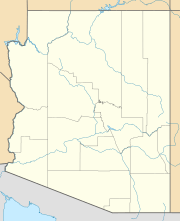Boulder Canyon (Colorado River) facts for kids
Quick facts for kids Boulder Canyon |
|
|---|---|
| Geography |
Boulder Canyon, once known as Devils Gate Canyon, is a deep valley carved by the Colorado River. Today, much of this canyon is underwater. It's now part of Lake Mead, a large lake formed by the Hoover Dam. The canyon sits right on the border between Clark County, Nevada and Mohave County, Arizona.
Boulder Canyon begins where the Virgin River flows into Lake Mead. It also helps divide the Black Mountains into two parts: the Arizona side and the Nevada side. The original entrance to the canyon is now hidden beneath Lake Mead.
Contents
Exploring Boulder Canyon's Past
Long ago, before Lake Mead existed, Boulder Canyon was a wild and important place. It was a key route along the Colorado River.
Mining and River Travel
From 1879 to 1887, a company called Southwestern Mining was very busy. They were digging up huge amounts of salt from the mountains near the Virgin River. To move all this salt, they used large boats called steamboats. These steamboats would carry the salt down the river to a processing plant in Eldorado Canyon.
Captain Mellon's Brave Idea
Traveling through Boulder Canyon by steamboat was dangerous, especially when the river was high. In April 1883, a brave captain named John Alexander Mellon came up with a clever solution. He took a small boat deep into what was then called Devil's Gate Canyon.
His mission was to install special metal rings, known as ring bolts. These weren't just any rings; they were eight inches wide and four feet long, made of very strong iron. These super-strong rings were used to secure lines from the steamboats. This helped the boats safely pass through the dangerous rapids of the canyon. It made river travel much safer for everyone heading to the mouth of the Virgin River at Rioville, Nevada.
Boulder Canyon Today: Part of Lake Mead
Today, Boulder Canyon is mostly submerged under the waters of Lake Mead. This massive lake was created by the construction of the Hoover Dam in the 1930s. The dam was built to control the Colorado River, provide water, and generate electricity. While the canyon itself is no longer visible in its original form, its history is still an important part of the region's story. It reminds us of the powerful river and the challenges early travelers faced.
 | Audre Lorde |
 | John Berry Meachum |
 | Ferdinand Lee Barnett |


